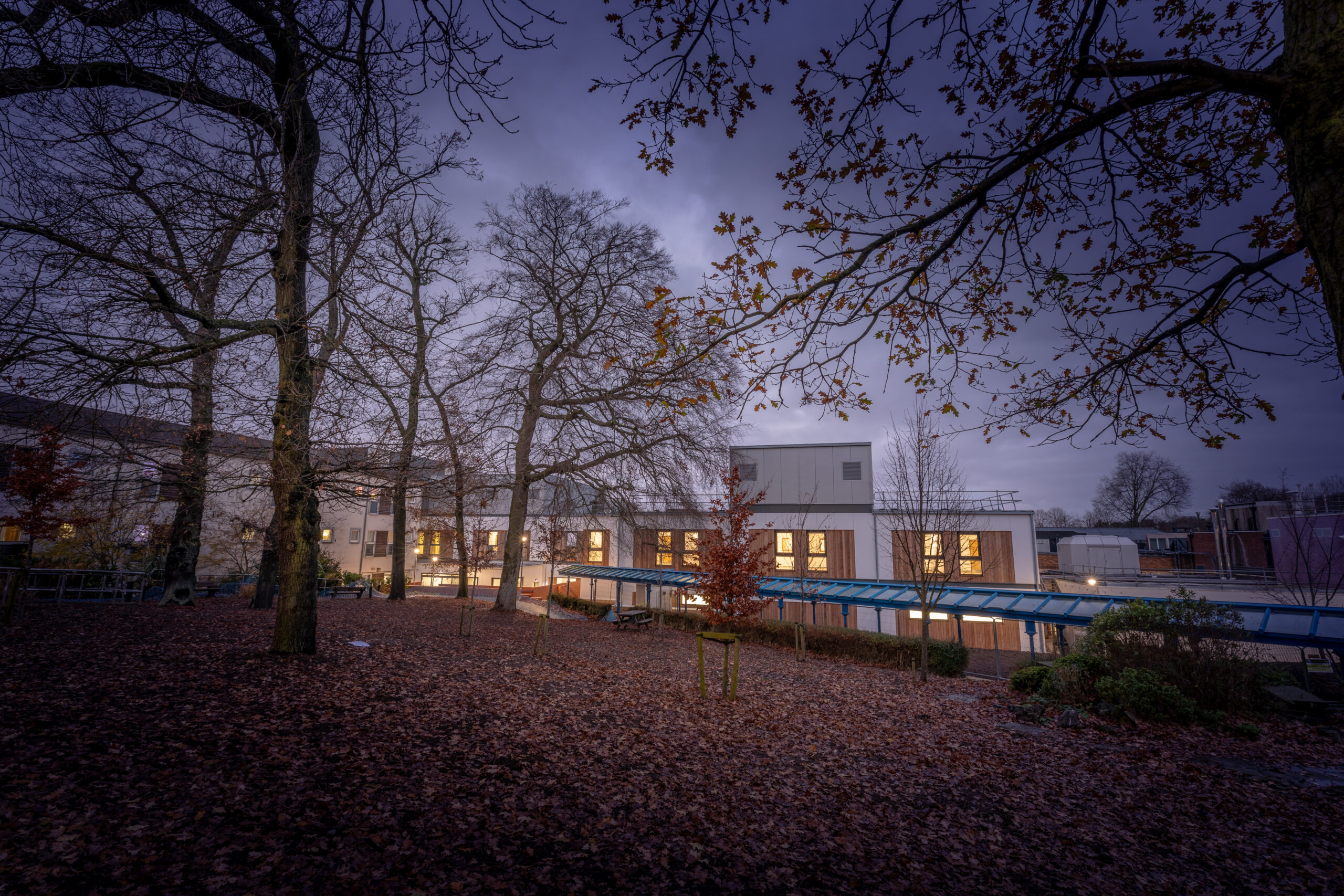The Royal Orthopaedic Hospital (ROH) sits within a Grade II listed building. Set in an illustrious landscape and rich in history, this 11-acre site has been both home to the Cadbury family, as well as being home to a number of Orthopaedic Hospitals over an impressive 200-year period.
That legacy meant that, when ROH wanted to create a new facility, a number of challenges had to be overcome.
The first was the challenge of the pre-exisiting operating theatres (built in clusters of three) all sharing the same mechanical plant. If anything went wrong with the plant, all of them would be unable to function. This risk meant the Trust needed additional theatre capacity and assistance to establish what was feasible.
Adding to a uniquely difficult challenge, the new facility would also be enclosed by a busy Theatre Department on one side, the Ward Blocks on another, and the Residency and Out-Patient Department on a third side, all surrounding the proposed site of the new facility.
We were being asked to operate at the very heart of the hospital, with the potential to cause immense disruption, amidst one of the most challenging periods in NHS history.
Nothing can be allowed to disrupt the functioning of a working hospital, least of all the disruption that building work can cause and as a consequence, it wasn’t long before the option of traditional construction was discounted in favour of off-site construction.
Along with an extensive list of logistical challenges, (including a very small, kidney shaped car park), proposals received by ROH estimated that a traditional build could take up to two years to deliver which, together with the operational disruption and the overall project cost, meant that the traditional route was not viable.
The budgetary aspects were critical due to the financial pressures placed on the NHS by the pandemic. However, ModuleCo were able to offer an alternative to capital purchase through a 10 year hire arrangement through ModuleCo Healthcare.
What followed was an intense schedule of meetings where the ModuleCo and ROH teams worked together to overcome the design and logistical challenges of delivering a large and highly complex operating theatre and ward facility.
Through flexibility of module sizes, completing 90% of the construction and fit-out work in our assembly facility, and taking an innovative approach to the build sequence, the site phase of the project was kept to a minimum, representing less than 30% of the site phase that traditional construction would have required.
The outcome was the delivery of a premium quality facility to ROH, conferring all of the benefits of off-site construction and offering an imaginative financial model.
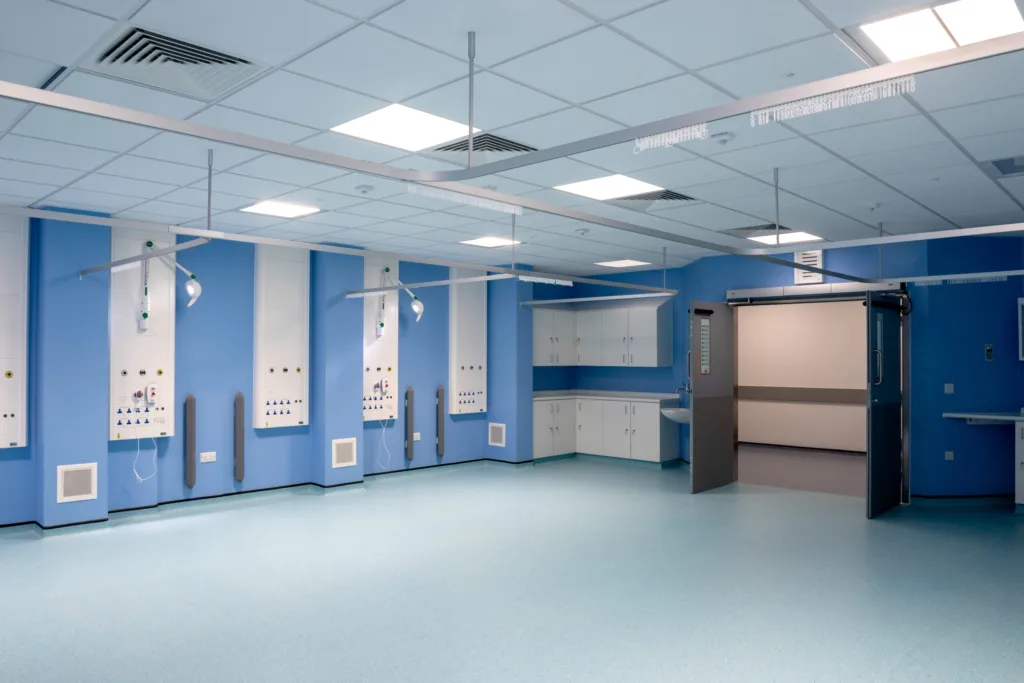
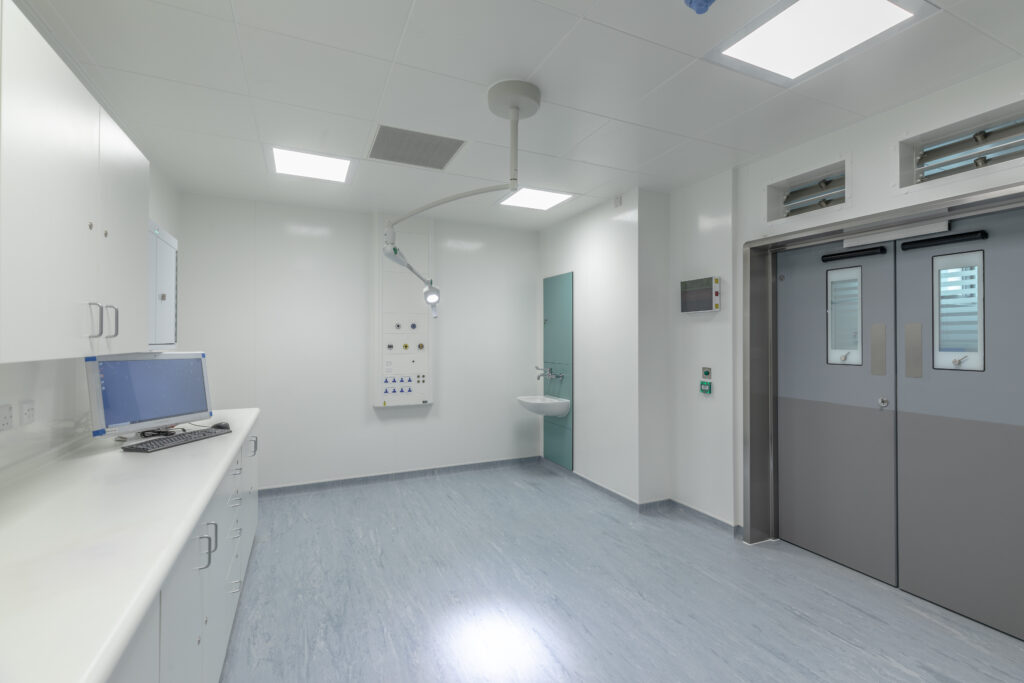
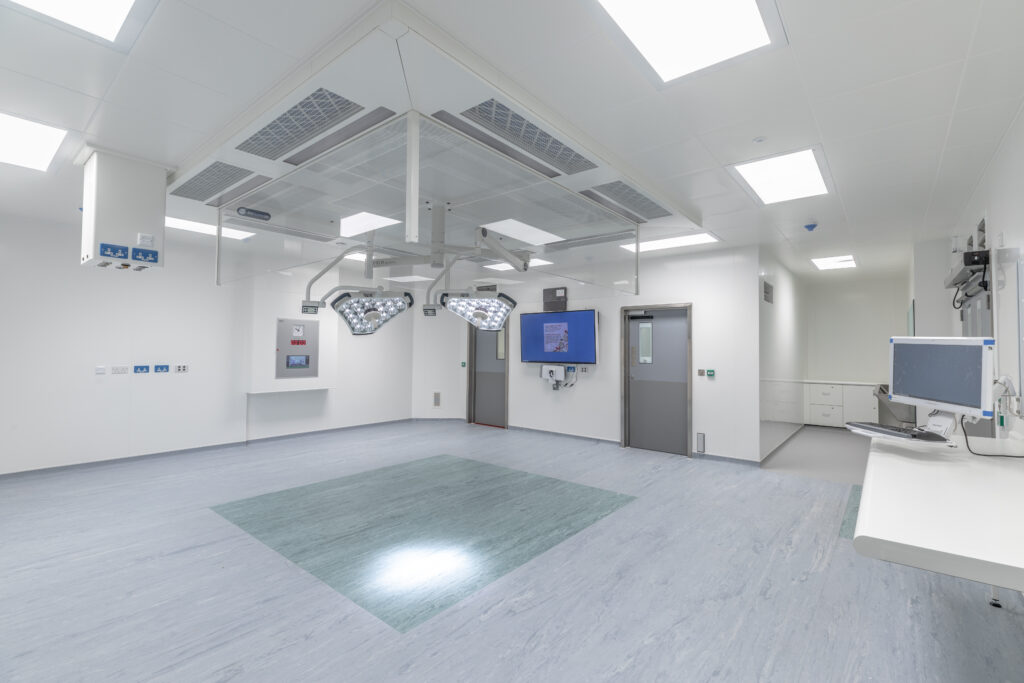
With ROH and ModuleCo collaborating as one team, Phase One was delivered on time, including two premium operating theatres, and twelve in-patient beds on the first floor.
Phase One was so successful that Phase Two was given the go-ahead within weeks of the handover of Phase One. The combined facility would offer a total of four brand new, state-of-the-art theatres with a first-stage recovery, a twenty-bed ward with two four-bedded rooms and the remaining twelve beds in single rooms with their own ensuite bathrooms.
As we build facilities in our own manufacturing plant, ROH could continue to operate and support their patients without any disruption on site at the hospital or the existing Theatre Department.
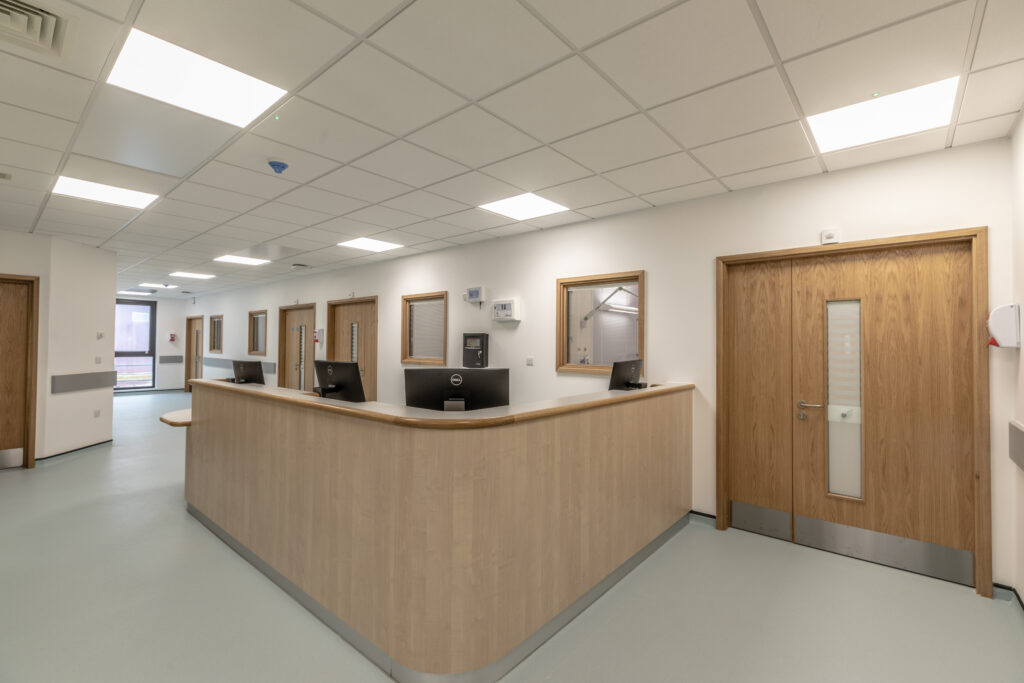
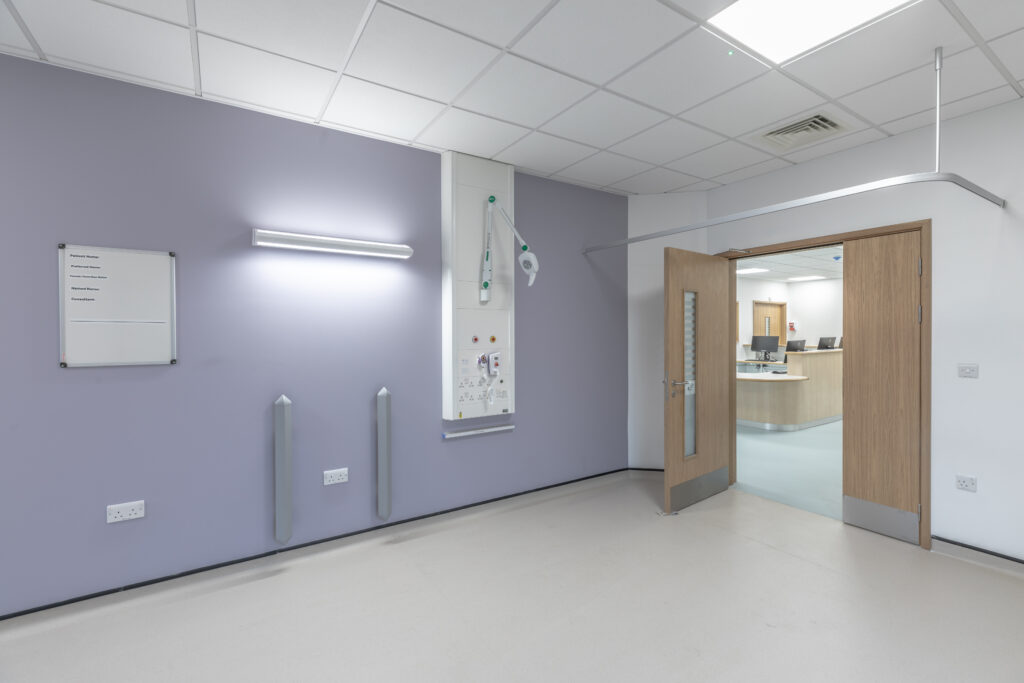
Together, we had surpassed the Trust’s original risk mitigation and capacity expansion objectives – all designed and created by our innovative in-house design team.
However, the overall success of the project was the outcome of the shared vision of the ROH and ModuleCo teams and a common belief that every decision should be made with patient welfare foremost in the considerations.
This unrelenting commitment to high quality patient care resulted in the award-winning facility which now sits at the centre of the ROH complex.
Jo Williams, Chief Executive Officer at ROHNHST, said: “It will allow us to offer more of our world-leading orthopaedic care to local people and provide a state-of-the-art working environment for our staff.”
Professor Phil Begg, Executive Director of Strategy and Transformation at ROHNHST, said: “The operating theatres are so exceptional – we have surgeons quite literally queuing up to use them. Between us and the team at ModuleCo, we have created the optimum conditions for the recovery of the patients in our care. That’s something to be proud of.”
